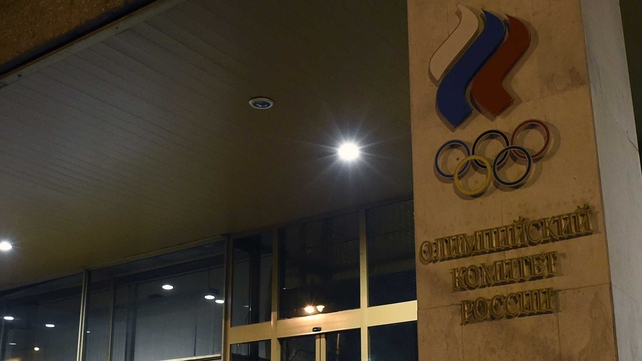With the Rio Games less than three weeks away, the International Olympic Committee have promised "the toughest sanctions available" after a report found Moscow had concealed the positive doping tests of athletes in many sports in the run-up to the Sochi Winter games.
The IOC did not spell out whether it would heed growing calls for Olympic bans already imposed on Russia's track and field athletes and weightlifters to be extended to all its competitors in Rio.
But IOC President Thomas Bach said the independent World Anti-Doping Agency (WADA) investigation had revealed "a shocking and unprecedented attack on the integrity of sport and on the Olympic Games".
"Therefore, the IOC will not hesitate to take the toughest sanctions available against any individual or organisation implicated."
WADA itself explicitly urged the IOC to consider banning Russia from the Rio Olympics altogether.
The WADA-backed report confirmed allegations made by former Moscow Anti-Doping Laboratory head Grigory Rodchenkov, who two months ago told the New York Times that dozens of Russians used performance-enhancing drugs in Sochi with approval from national sports authorities.
It said the catalyst for the development of a system to conceal widespread doping had been Russia's performance at the 2010 Vancouver Winter Games, where a country that cherishes its status as a sporting superpower finished 11th, with only three gold medals.
"The surprise result of the Sochi investigation was the revelation of the extent of State oversight and directed control of the Moscow Laboratory in processing and covering up urine samples of Russian athletes from virtually all sports before and after the Sochi Games," said the report, unveiled in Toronto.

The report was led by Canadian sports lawyer Richard McLaren, who had sat on the independent commission that last year exposed widespread doping and corruption in Russian track and field, leading to its exclusion from international competition.
He said Russia's Sports Ministry had overseen the manipulation of athletes' analytical results for years before Sochi.
While doped Russian athletes could compete on home soil without fear of detection, international competitors were left to face WADA testing procedures.
"The State implemented a simple failsafe strategy," the report said. "If all the operational precautions to promote and permit doping by Russian athletes proved to have been ineffective for whatever reason, the laboratory provided a failsafe mechanism.
"The State had the ability to transform a positive analytical result into a negative one by ordering that the analytical process of the Moscow Laboratory be altered."
In Sochi itself, where international observers were scrutinising the drug tests, positive results could not simply be brushed away, so a system of sample-swapping was put in place with the help of the FSB intelligence service, the report said.
Rodchenkov had spoken of a clandestine night-time operation in which he said staff secretly took urine samples from the lab via a "mouse hole" cut into a wall, and replaced them with clean samples taken from the same athlete months earlier and sometimes manipulated.
Russian Prime Minister Dmitry Medvedev has suspended Deputy Sports Minister Yury Nagornykh, who was named in the report as overseeing the process.
President Vladimir Putin said earlier on Monday that Russian officials named in the World Anti-Doping Agency's report would be temporarily suspended.
The report said Nagornykh had been advised of every positive test across all sports from 2011 onwards and decided "who would benefit from a cover-up and who would not be protected".
Russian Sports Minister Vitaly Mutko was defiant, telling TASS news agency that there were no concrete confirmation of doping violations in the report.
"I hope that the IOC, while taking up a decision, will be guided by common sense and will proceed from the fact that there is no a concrete confirmation of a violation by this or that athlete in the report," he was quoted as saying.

